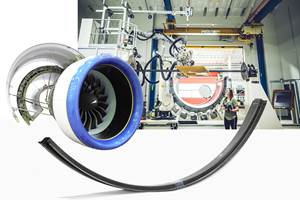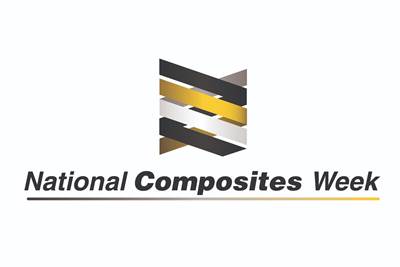
In recognition of National Composites Week, ÂÌñÏ×ÆÞ is looking back on the top 20 stories of the past decade. These stories are still relevant today and show the impact of composites across time. Are composites essential? The answer in these stories proves to be yes.
High-temperature performance and superior strength properties may make this late-comer a better choice in some applications.
A wealth of low-cost core solutions are available for high-performance sandwich structures.
As the wind energy market continues to grow, competition heats up between glass and carbon fiber composites for turbine blades.
Oven-cured, vacuum-bagged prepregs show promise in production primary structures.
For composite applications, these hollow microstructures displace a lot of volume at low weight and add an abundance of processing and product enhancements.
Applications aren't as demanding as airframe composites, but requirements are still exacting — passenger safety is key.
Composite structures are more vulnerable to damage than metal, but today's LSP products offer proven protection.
Composites Technology Development's first commercial tank in the Type V category presages growth of filament winding in storage of compressed gases.
Fiber-reinforced plastic (FRP) replacing coated steel in more reinforced-concrete applications.
Approaching rollout and first flight, the 787 relies on innovations in composite materials and processes to hit its targets
Commercial production of recycled carbon fiber currently outpaces applications for it, but materials characterization and new technology demonstrations promise to close the gap.
Fast-reacting resins and speedier processes are making economical volume manufacturing possible.
Lightweight, hard and stable at high temperatures, CMCs are emerging from two decades of study and development into commercial applications.
Two decades of technical and market development has made this once marginal application a global giant and one of the world’s largest markets for composites.
Naval architects reveal design, tooling and material selection guidelines for a new sportfishing powerboat.
Yes, advanced forms are in development, but has the technology progressed enough to make the business case?
As composites take a larger part (and form larger parts) in the aerospace structures sector, it’s not just a make-it-or-break-it proposition.
Focused on optimizing traditional hand layup, nacelle and thrust reverser manufacturers cast an eye on future use of automation and closed molding.
Automated tape laying and automated fiber placement technologies take a key enabling role in production of today’s — and tomorrow’s — composite-airframed commercial jets.
As the general aviation (GA) segment emerges from the recessionary storm clouds, GA manufacturers and the composites supply chain that supports them should see sunny days … with some clouds and a chance of rain.
It should be noted that two honorable outlier mentions are “The making of glass fiber” and “The making of carbon fiber.”
Related Content
The potential for thermoplastic composite nacelles
Collins Aerospace draws on global team, decades of experience to demonstrate large, curved AFP and welded structures for the next generation of aircraft.
Read MoreComposites end markets: New space (2025)
Composite materials — with their unmatched strength-to-weight ratio, durability in extreme environments and design versatility — are at the heart of innovations in satellites, propulsion systems and lunar exploration vehicles, propelling the space economy toward a $1.8 trillion future.
Read MoreCutting 100 pounds, certification time for the X-59 nose cone
Swift Engineering used HyperX software to remove 100 pounds from 38-foot graphite/epoxy cored nose cone for X-59 supersonic aircraft.
Read MoreRevisiting the OceanGate Titan disaster
A year has passed since the tragic loss of the Titan submersible that claimed the lives of five people. What lessons have been learned from the disaster?
Read MoreRead Next
National Composites Week: The Essentials of Composites
Kicking off the second National Composites Week, we’re starting with some industry basics.
Read MoreCeramic matrix composites: Faster, cheaper, higher temperature
New players proliferate, increasing CMC materials and manufacturing capacity, novel processes and automation to meet demand for higher part volumes and performance.
Read MoreNext-gen fan blades: Hybrid twin RTM, printed sensors, laser shock disassembly
MORPHO project demonstrates blade with 20% faster RTM cure cycle, uses AI-based monitoring for improved maintenance/life cycle management and proves laser shock disassembly for recycling.
Read More












